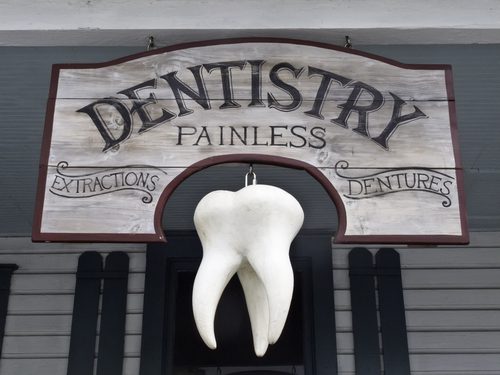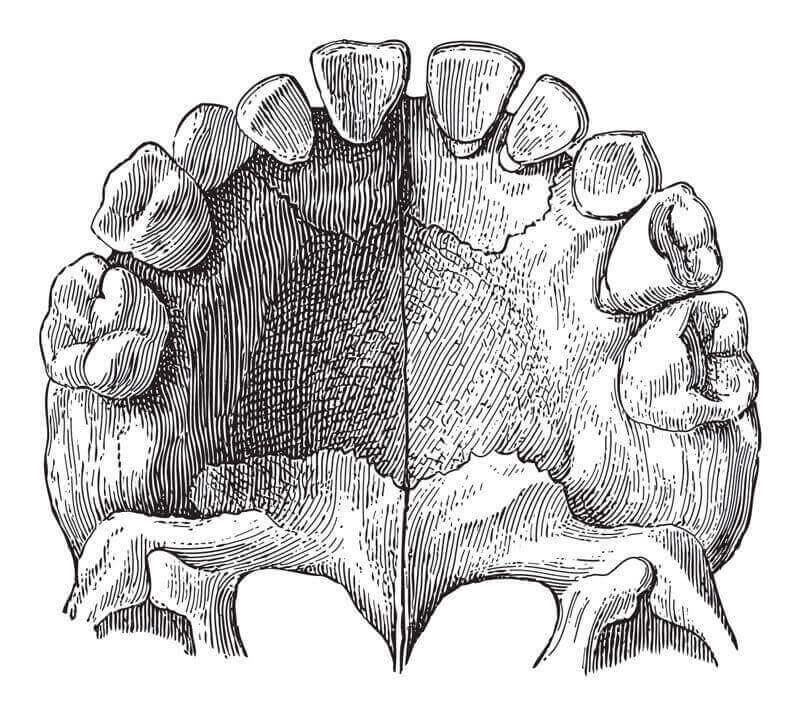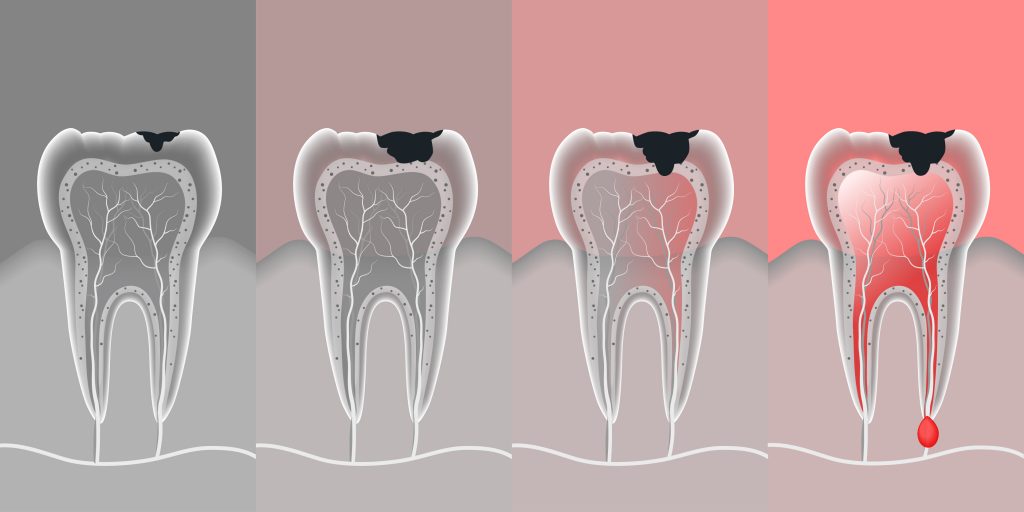Our lives are full of myths, superstitions, and old wives’ tales. They helped our ancestors understand the world around them and gave them a way to pass knowledge down through the ages. But as times passes and we gain a better understanding of how things work, some of these pearls of wisdom become outdated.

Toothaches
Long before we figured out what really causes toothaches, people believed that they were because of “tooth worms” that lived in the mouth and caused pain by burrowing through the teeth. There were several remedies for this, including smearing the tooth with honey, carrying a small bag filled with horse teeth or teeth from a corpse, or even crushing ladybugs into a juice and applying that to the affected tooth.
Even today there are old wives’ tales regarding toothaches and their treatment. One common piece of advice is to apply aspirin or clove oil directly to an aching tooth. In reality, both of these substances can irritate the gums, and aspirin can even create an acid burn if left on too long.
Sugar Causes Cavities
It has long been thought that sugar is what causes teeth to decay and develop cavities. While it is a better explanation than a tooth worm, it is still not quite correct. While sugar definitely contributes to tooth decay, it is because of the buildup of bacteria and acidity from the food you consume, not because of the sugar alone.

Babies Born With Teeth
Many cultures around the world have superstitions about babies being born with teeth already visible. In places like Malaysia and parts of Europe, this was thought of as good luck for the baby; however, in other countries, such as China and some small villages in Africa, babies born with teeth were thought of as bad luck or even evil.
Using Urine As a Mouthwash Will Prevent Tooth Decay
Many people used to believe that rinsing with urine would protect against tooth decay. This probably stems from the fact that urine contains ammonia, but the origin of this myth is unknown.
Debunking the Myths
The Truth About Toothaches
Luckily, the tooth worm is an outdated concept. But what does cause toothaches? Generally, a toothache is defined as pain in or around a tooth. Several factors can cause a toothache. You could have tooth decay, which causes cavities and sensitivity, or the pulp of your tooth could be inflamed. You could also have an abscess, which is an infection in the pulp of the tooth. Sometimes, your toothache may not be related to your teeth at all, but rather to something like a sinus infection.
Whatever is causing your toothache, it is important to see your dentist as soon as possible to figure out what treatment is needed. The pain can become quite severe or even debilitating, which could indicate that something is wrong and requires professional attention.
If you have a toothache that needs professional treatment, contact our office at (310) 273-0111 to schedule an appointment.
(Not Only) Sugar Causes Cavities
The food and drinks we consume (including sugary and acidic foods) also cause plaque and tartar to build up on the teeth. Plaque and tartar wear away the enamel, eventually causing holes (cavities) to form. Medical issues, such as dry mouth, can also cause cavities. If left untreated, a cavity can become quite large and even lead to infection of the affected tooth.

Natal Teeth
While many cultures have superstitions about babies being born with teeth (natal teeth), it is actually a normal (but rare) phenomenon. Most people have two sets of teeth: their baby teeth and their adult teeth. In some rare cases, a baby may have been born with a third set, known as supernumerary teeth. However, natal teeth are usually the child’s regular baby teeth that have erupted earlier than they normally would have. While natal teeth may cause problems such as injuries to the baby’s tongue or mother’s nipples while breastfeeding, they can usually be left where they are until they fall out naturally. As long as they are not causing issues for you or your baby, natal teeth should be cared for just like any other teeth.
Better Mouthwash Options
Thankfully, urine is no longer recommended as a mouthwash. If you want to find an oral rinse that will help prevent cavities, look for one that contains fluoride. Your dentist may also recommend or prescribe a product that contains active ingredients, such as peroxide or chlorhexidine, to help combat tooth yellowing or to control gingivitis and plaque. Mouthwash should not be used as a substitute for proper brushing, but it can provide additional benefits when needed.
While old wives’ tales and superstitions may have some nuggets of truth in them, it is always best to do your research before attempting to treat dental issues on your own. Improper dental care can lead to cavities, gum disease, tooth loss, and even more serious health issues. Taking preventative measures by having regular dental checkups is the best way to keep your smile healthy.
If you are interested in any of our services, please fill out our online contact form today to schedule an appointment.